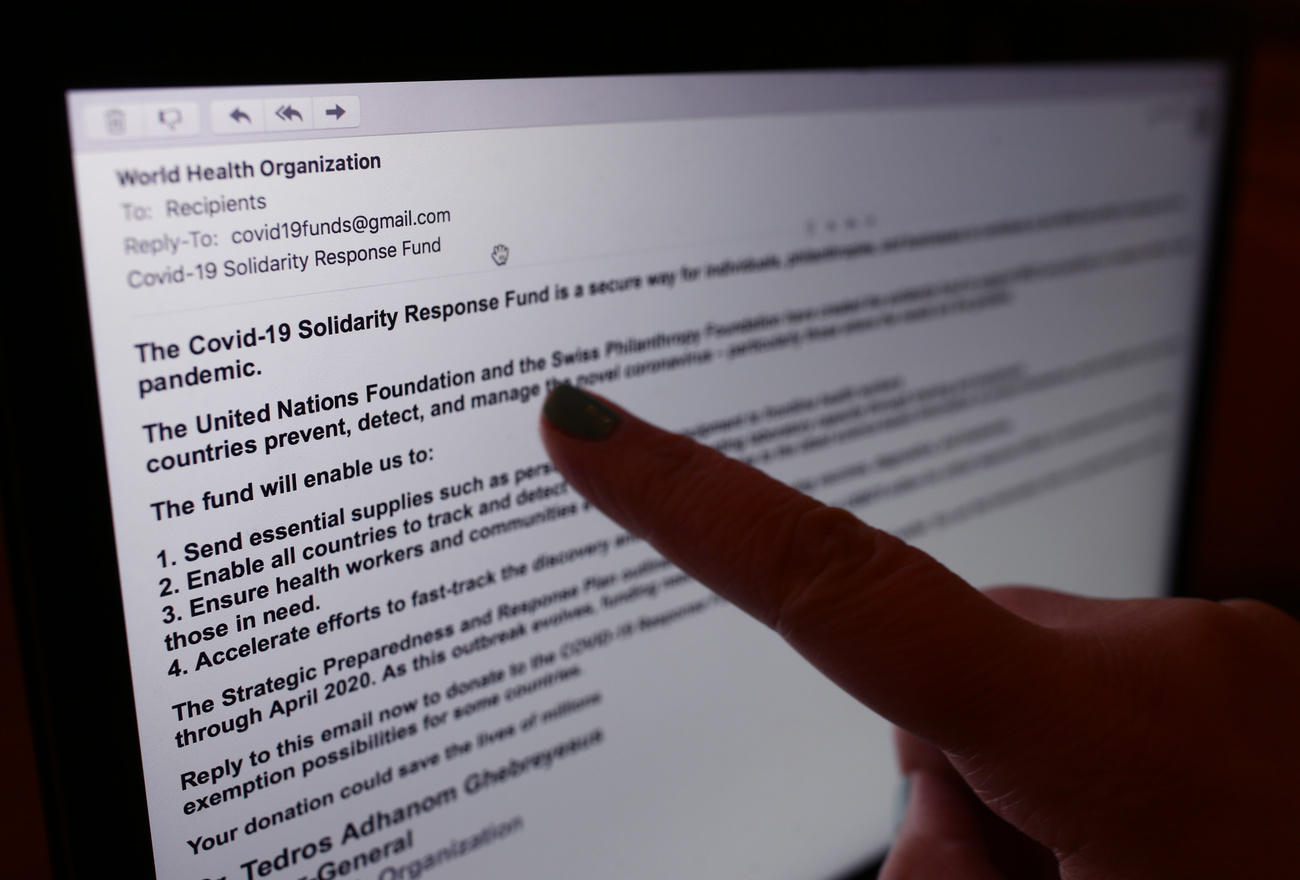
Swiss state-owned companies targeted by phishing scams

Swiss Post and the national railway operator have warned their clients about fake emails asking for personal passwords, credit card numbers or cash payments.
The two companies posted information on their websites asking customers to avoid opening the e-mails and to delete the suspicious messages from their inbox.
Both Swiss PostExternal link and Swiss Federal Railways (on the personalised SwissPassExternal link website) said they had received reports of an “increasing number” of attempts at fraud on the internet over the past few days.
They said they were cooperating closely with the government’s Reporting and Analysis Centre for Information Assurance (MELANIExternal link). It is part of efforts to boost cybersecurity and combat computer fraud.
Researchers also noted a considerable increase in cases of internet fraud in the early stages of the coronavirus pandemic.
Creative criminals have been trying to trick people out of their money in online scams, also by stealing personal information.
The number of cyberattacks reported in Switzerland during the height of the Covid-19 pandemic was up to three times higher than normal.

More
Switzerland sees more online crime amid coronavirus shock

In compliance with the JTI standards
More: SWI swissinfo.ch certified by the Journalism Trust Initiative




























You can find an overview of ongoing debates with our journalists here . Please join us!
If you want to start a conversation about a topic raised in this article or want to report factual errors, email us at english@swissinfo.ch.